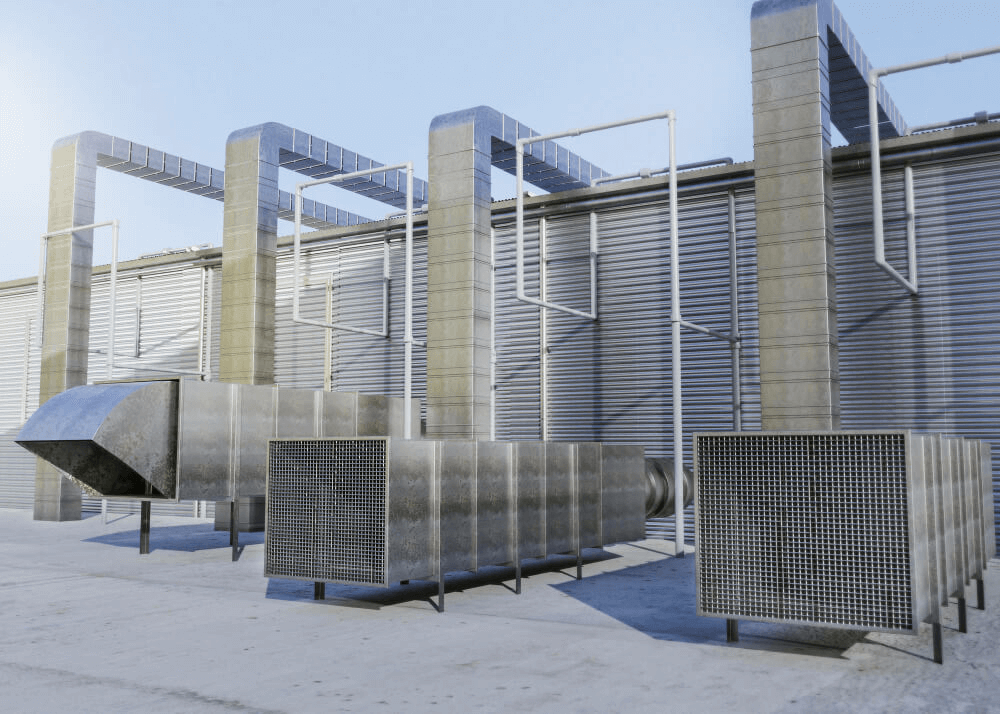
The Importance of Proper Ventilation in Industrial Sheds
Proper ventilation in industrial sheds is often overlooked, yet it's a crucial component of a safe and efficient workspace. Inadequate ventilation can lead to a host of problems, from compromised worker health to reduced productivity.
The Impact of Poor Ventilation
- Health Risks: Poor ventilation can lead to the accumulation of harmful pollutants, dust, fumes, and gases, posing serious health risks to employees. These contaminants can cause respiratory problems, headaches, fatigue, and other health issues.
- Productivity Loss: A stuffy and uncomfortable environment can negatively impact employee morale and concentration, leading to decreased productivity.
- Equipment Malfunction: Excessive heat and humidity caused by poor ventilation can damage machinery and equipment, resulting in costly repairs and downtime.
- Fire Hazards: The accumulation of flammable materials and dust in poorly ventilated areas can increase the risk of fire.
- Product Quality: In manufacturing facilities, poor air quality can affect the quality of products.
Benefits of Proper Ventilation
- Improved Air Quality: Proper ventilation removes contaminants and ensures a fresh air supply, creating a healthier working environment.
- Enhanced Employee Well-being: Employees are more comfortable, focused, and productive in a well-ventilated space.
- Reduced Equipment Downtime: Proper ventilation helps maintain optimal operating conditions for machinery and equipment.
- Fire Prevention: By reducing the accumulation of flammable materials, ventilation helps prevent fires.
- Product Quality: Consistent air quality contributes to better product quality and consistency.
Must Read- Top Benefits of Industrial Sheds in India
Ventilation Systems for Industrial Sheds
The choice of ventilation framework depends on the size of the shed, the type of activities conducted, and the climate.
- Natural Ventilation: This relies on opening windows and doors to allow fresh air to enter and stale air to exit. While effective in some cases, natural ventilation may not be sufficient for industrial settings with high contaminant levels.
- Mechanical Ventilation: This involves using fans and ducts to circulate air. There are various types of mechanical ventilation systems, including exhaust fans, supply fans, and air conditioning systems.
- Local Exhaust Ventilation: This system is used to capture and remove contaminants at their source, such as welding fumes or chemical vapors.
Also, Read- 5 Tips to Maintain Industrial Sheds
Factors to Consider for Effective Ventilation
- Airflow: Ensure adequate airflow to remove contaminants and maintain fresh air.
- Temperature and Humidity Control: Balance temperature and humidity levels for optimal comfort and equipment performance.
- Energy Efficiency: Choose ventilation systems that are energy-efficient to reduce operating costs.
- Maintenance: Regular inspection and maintenance of ventilation systems are crucial for optimal performance.
Must Read- Fivefold Benefits of Investing in Industrial Plots
Conclusion
By investing in proper ventilation, businesses can create a safer, healthier, and more productive work environment while protecting their assets, complying with safety regulations, enhancing employee satisfaction, mitigating environmental impact, and potentially increasing property value. Wondering how to achieve optimal ventilation for your industrial shed? Our experts can help. Contact Jaywant Group for a comprehensive ventilation assessment today!





